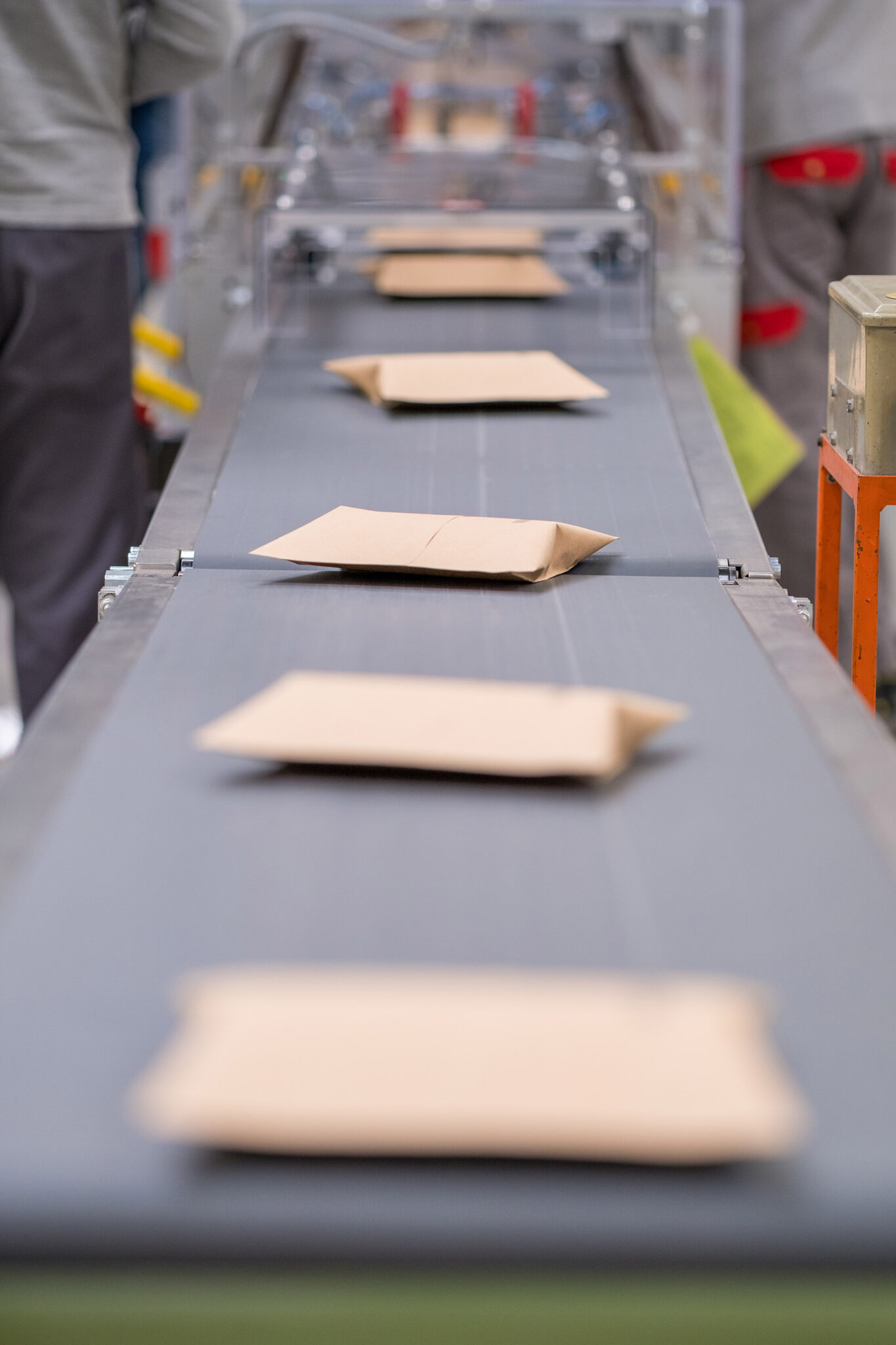Customers are shopping more and more online, and not just since COVID-19. However, the pandemic has even strengthened this behaviour. With the increasing e-commerce, courier, express and parcel services need to supply the consumers in a reliable and faster way, all while being able to handle different types of goods. The capacity of their sortation and distribution systems often decides on their competitiveness.
Thomas Wiesmann from BEUMER Group, pictured above, knows which sortation trends owners are following, how they can react to them and where the journey will take them.
The way people shop has been changing since before COVID-19, but hardly anything has had such a rapid and sustainable impact on shopping behaviour as the corona virus. As many shops had to close during the past months, even more consumers are buying online. “This structure change is developing in accelerated time during the pandemic,” says Thomas Wiesmann, Director Sales Logistic Systems at BEUMER Group. This considerably increases the competitive pressure on courier, express and parcel services (CEP).
In order to hold their own against competitors, the future success of mail order companies and logistics service providers will depend even more on the performance of their distribution centres. The companies intend to save costs with their systems, to pursue a more environmentally conscious approach and above all follow market trends. Market trends? “Technology with regard to the distribution of different goods is becoming more and more complex,” knows Wiesmann. Not only are the numbers of goods to be dispatched increasing, but also the sizes are more and more different. The range has become more varied,” is how the BEUMER expert sums up his impressions gained during his many years of experience with customers. Parcel sizes are tending to decrease, although large parcels are still being sent.
At the beginning of the pandemic, not only the online retailers selling hygiene products, breathing masks, pasta and canned food registered considerable turnover gains. Food, drugstore goods and medicines generally showed strong growth. Thomas Wiesmann is sure that these products will continue to establish themselves at a higher level in online retailing. Apart from flexibility, the throughput in sortation technology is playing an increasingly important role. Online trading also implies that more and more customers want to see the goods they ordered in the morning on their doorstep the same day. “The sortation and distribution systems are designed to support distributors in these demanding tasks and can be adapted flexibly and quickly to the new conditions”.
Owners of logistic and distribution centres are looking for high-performance systems, as their existing technology is often not sufficient anymore. In addition, the number of sortation and distribution systems required is constantly increasing: service providers are increasingly building small, decentralised distribution centres close to their customers in order to be able to supply them even faster. This is becoming more important to ensure that they remain loyal to them.
More performance required
In order to meet the performance challenges, the trend goes towards more automation, enabling a more ergonomic operation of the sorter. Employees are being relieved and the companies can work more efficiently and thus increase the throughput. They are prepared for future capacity forecasts. Furthermore, automation improves the visibility and the traceability of the dispatched goods.
“In order to optimally support our customers and to give them the possibility of increasing their competitiveness, we offer for example our newly developed BG Sorter Compact CB,” says BEUMER expert Wiesmann. The system is suitable for a wide range of items: small, light shipments as well as parcels weighing up to twelve kilograms. Even goods that are fragile or have packaging that is difficult for conventional equipment to handle, such as smooth plastic film, can be easily handled thanks to gentle sortation.
“CEP companies and distribution centres often have to react within a short period of time to new tasks – as it is currently the case,” describes Wiesmann. Instead of buying a new system, they want to extend their existing sorters as needed. This requires sortation technology systems that can be easily and quickly integrated.
A further experience made by Thomas Wiesmann: In many halls, the available space is not sufficient for a new system. “Thus, compact sortation solutions are required, which can be flexibly adapted to the local conditions – even if space is restricted. “Our BG Sorter Compact CB meets these requirements. It is also possible to integrate induction units and destinations in a small footprint,” says Wiesmann. A further important aspect for successful work is the sortation accuracy. With the BEUMER systems, this is almost 100 per-cent: the items are actively discharged, not by weight. With this high precision, owners can reliably supply their customers and thus secure their competitiveness.
Better processes with the support of data analysis
Digitalisation is indispensable in increasing the performance of the systems sustainably. With the support of data analysis, it is possible to collect large amounts of data on the machines, to evaluate them in a targeted manner and thus detecting where there is potential for improvement. “The collected information permits us to continuously improve operation, which has a positive effect on product life-cycle costs,” promises Wiesmann. The owners can also recognise how the system management can be optimised.
The data analysis helps to increase the availability and performance of the sorters, keyword “machine learning.” The decisive factor is continuous access to real-time data from every system area. With the help of a digital twin, it is possible to monitor material flows or even the routing of the system in every detail. This is supported by the visualisation of results. The operator could use colour codes, for example, to make bottlenecks visible or use time filters to include collected data for the analysis.
Maintenance: only if required
With the support of data analysis, it is possible to identify actual operating hours and loads. The owners use it to reliably monitor their systems and see in time when an error is going to occur. This enables them to maintain their system at the perfect time. “Maintenance cycles can be adjusted to the actual load,” says Wiesmann. The more intensively a company knows the operating conditions of the system, the better they can benefit from this opportunity. This is because the machine will learn to learn, and instead of just recognising that something is wrong, it will also find out the cause, supported by the information obtained. This will enable the sorters to independently generate a perfectly fitting maintenance plan in the future. Service personnel will only replace a component when it is really necessary and not according to a fixed cycle
Data-controlled analysis is thus becoming more and more popular with operators. After all, sensors are already part of every system and able to generate and process huge amounts of data. Based on this acquisition of information, further services may be added in the long term. Wiesmann is thinking of video coding for machine learning. He also envisages cloud-based optical character recognition to convert scanned images with text into machine-readable text.
Currently the data analysis is especially based on existing operational data. In the future, however, it is intended to use more sensors and other systems able to collect much more data. The sorter will then be able to continuously make processes smarter and increase the level of automation, a clear competitive edge for any operator. “Our solutions permit us to set trends and to support our customers in future growth,” says Wiesmann. “We make it possible for them to respond quickly and reliably to changes in the market – and not only in Corona times”.








